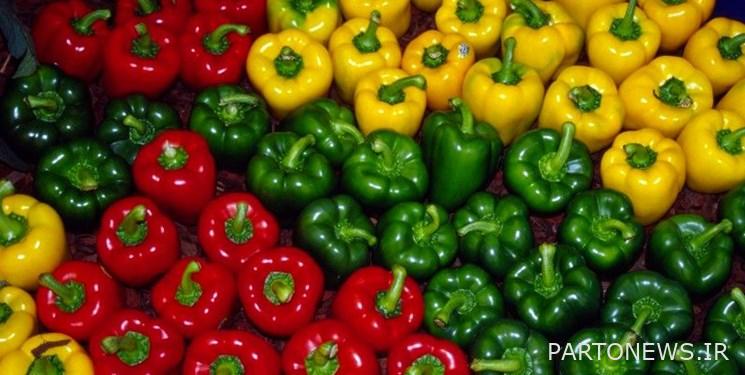The latest status of pepper and kiwi exports / “Samak” system to organize exports will be launched in March

According to the economic correspondent of Fars News Agency, today Shahpour Alaei Moghaddam announced in a press conference on the occasion of the Fajr decade: the export of pepper to Russia is still stopped and a team from Russia is scheduled to come to the country from February 6. They produce pepper and if they do not think it is a problem, they will resume exports.
He also stated that the reason for the return of peppers exported to Russia was the non-registration of four types of toxins in this country and said: “All export pepper products are healthy and have no residues of toxins.”
Alaei Moghaddam also said about the export of kiwi to India: “In a webinar meeting we had last week with the Plant Protection Organization of India, we agreed to give them the information of the last three years and it was sent to this country in 72 pages and they want all statistical information.” In which kiwifruit is grown and it is hoped that after clearing the ambiguities, kiwifruit exports to this country will continue.
He added: “We have 180,000 tons of exports, of which India’s share is 32,000 tons.”
* The Samak system is launched
The Deputy Minister of Jihad for Agriculture also announced the launch of the Samak system and said: این This system will be launched from March and no production and export products, including vegetables, summer and other agricultural products will be able to supply and export without registration in the Samak system.
Alaei Moghaddam explained about the operation of this system and said: all the information of the producers of their products from the farm to the table is clear in this system and a health certificate will be issued based on it.
* Farmers must buy pesticides by prescription
Alaei Moghaddam said: “From today, all provinces of the country will be notified that the purchase of pesticides will be done with the prescription of phytosanitary clinics.” This problem has been created in the past years due to the lack of supervision of the medical system organization.
He added: the number of phytosanitary clinics is one-eleventh of poison shops. In fact, the Agricultural Engineering System Organization has issued a license to sell pesticides in the past years without supervision and accuracy, and the Productivity Increase Law has 52 duties for this organization, which it must also fulfill.
* To prevent the products from being returned, the credit of the Plant Protection Organization should be increased
The Deputy Minister of Jihad for Agriculture further complained about the low level of credits of the Plant Protection Organization and said: “Considering the large volume of work from issuing health certificates to monitoring the health of crops, fighting locusts, etc., this credit is very It is low and at least 6 thousand billion tomans of money is needed for the first year.
Alaei Moghaddam informed of 14 proposals to the Joint Commission in this regard and said: “Now the authority is in the hands of the Joint Commission and it can prevent the recurrence of agricultural products in the future by increasing the credits.”
He continued: “Our proposal is that the government allow us to provide the minimum amount of credit we need from the tolls of imported pesticides and the cost of health certificates, all of which are now deposited in the state treasury.”
The head of the country’s Plant Protection Organization announced the letter of the Minister of Jihad for Agriculture to the President and also the head of the Program and Budget Organization to increase funds for locust control and said: in this letter, at least 50 billion tomans have been requested to fight locusts.
He predicted that locusts will fall on farms in the southern regions of the country from February 6th.
* The plant protection law, which dates back 46 years, is changing
The head of the Plant Protection Organization said that part of the discrepancies was the obsolescence of the plant protection law and said: “This law is related to the past 46 years and we proposed to the parliament to change this law and our request is that the parliament approve this law in due time.” For example, according to this law, exports are done with a health certificate issued by the Plant Protection Organization, but now the destination countries require a health certificate, which is not seen in this law.
end of Message/
You can edit this post
Suggest this for the front page

